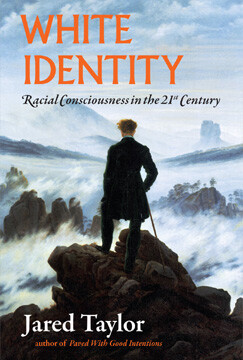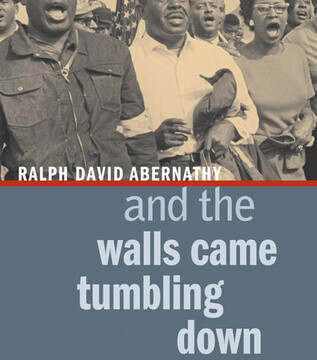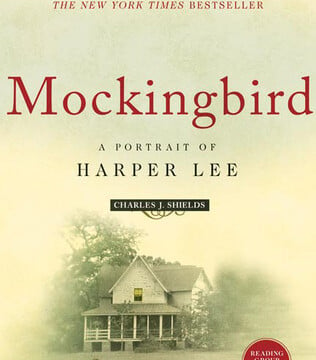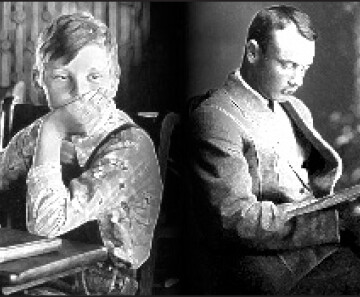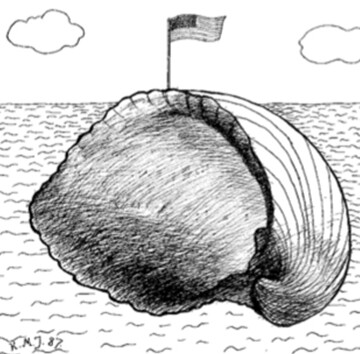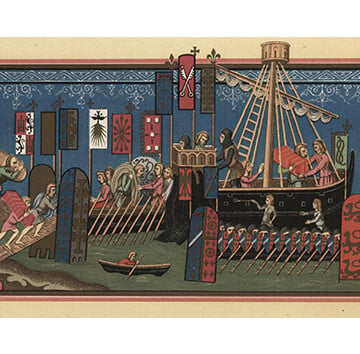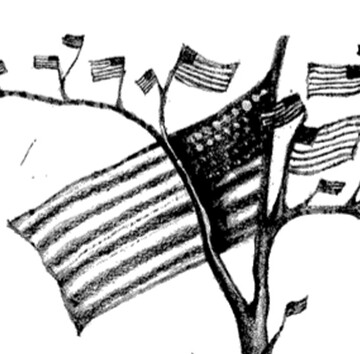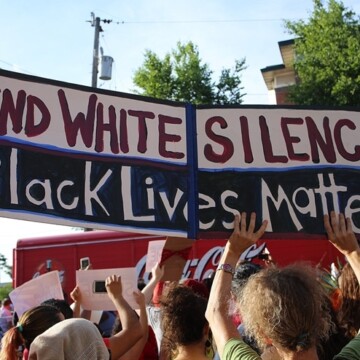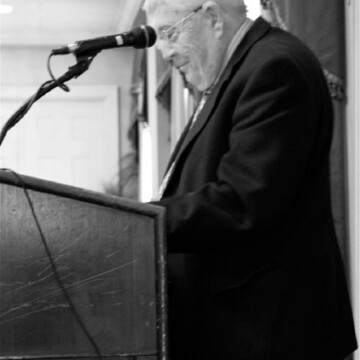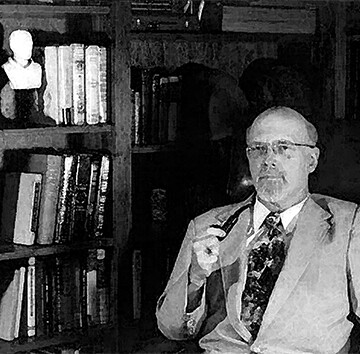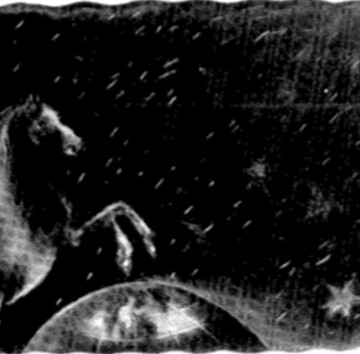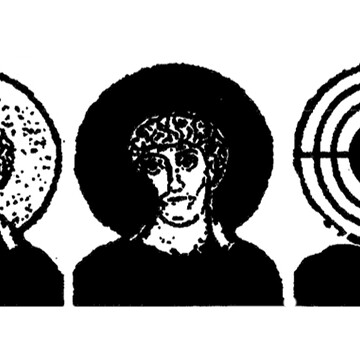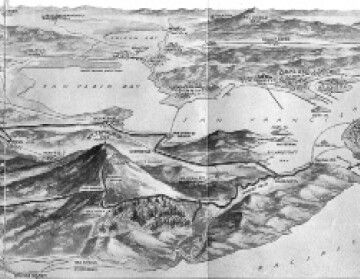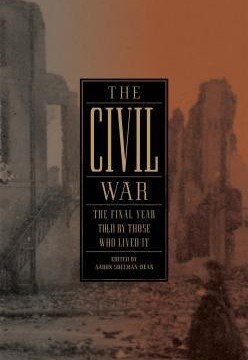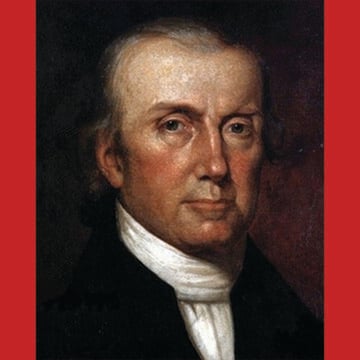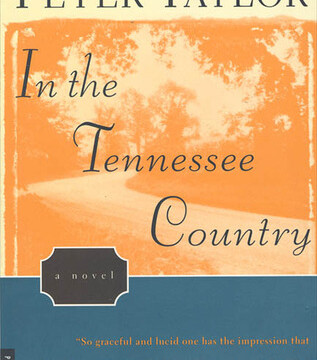One sometimes feels obliged to contextualize a disagreement, because the point in dispute has still not been clearly stated. I have written critically more than once about the works of C. Bradley Thompson, first about his study of neoconservatism, Neoconservatism: An Obituary for an Idea (2010), and more recently, about a book he completed on America’s Founders, America’s Revolutionary...
2673 search results for: Southern%252BHeritage
White Like Me
Few men in America are as reviled by the liberal establishment as Jared Taylor, editor of American Renaissance. According to the Southern Poverty Law Center (SPLC), he is “a courtly presenter of ideas that most would consider crudely white supremacist.” Keep in mind that the SPLC is an organization that cites Thomas Fleming, editor of...
A Good Man Is Hard to Find
The road to hell, I was taught as a child, is paved with good intentions. Surely no one could fault the intentions of the Reverend Ralph David Abernathy—Martin Luther King’s right arm and successor in the Southern Christian Leadership Conference—as revealed in this fascinating and moving autobiography. Inspired by faith in Divine mercy, by a...
Mysteries of the Mockingbird
Harper Lee’s novel To Kill a Mockingbird has sold over 30 million copies since its publication in 1960. Hardly a high-school student in America over the last 40 years has graduated without having read the 1930’s-era drama of a small-town Southern lawyer who defends an innocent black man accused of rape by a white woman. ...
Sources of Contention
Cultural symbols are sources of contention everywhere. In Russia, a squabble over a monument rings a bell with this proud Southerner. The powerful Communist (CPRF) faction in the Duma recently raised the question of returning “Iron Feliks” Dzerzhinsky, the Soviet Unions first secret policeman, to his pedestal facing the Lubyanka, the one-time home of the...
Nothing Out of Something
Moving by fits and starts, this biography of the Southern novelist and wife of Allen Tate lacks focus and—ultimately—purpose. Veronica Makowsky’s is a dull account of an inherently interesting subject. This relatively small book is essentially a failure, rendering, as it does, a diminished, fragmented, and elusive portrait of Caroline Gordon. The book does include...
Unsung but Unvanquished
Though one of the original Agrarians—men now widely considered prophets—Andrew Lytle is an unheralded man of letters. He has been an influential editor, essayist, farmer, poet, and novelist; yet, outside of a small group of men devoted to Southern letters, Lytle has not been fully appreciated. John L. Stewart, the oft-praised Northern historian of the...
La-La Land Reacts to the Immigration Protests
In a sane world, the sight of more than a half-million immigrants—many of them illegal—flooding the streets of downtown Los Angeles and waving Mexican flags would have been something of a wake-up call for Southern Californians. It wasn’t. No matter how in-your-face the protesters have become, conventional wisdom argues that these nice folks are simply...
I’m Just a Travelin’ Man
“Education begins with life,” said Benjamin Franklin somewhere. That was how it always seemed to me when I was growing up in Southern Ireland in the 1970’s and 80’s. I enjoyed some things about school, especially my secondary school—an experimental comprehensive, one of only two in the country at that time, opened to cater to...
Full Circle
One of two epigraphs with which Elizabeth Spencer introduces her memoir of growing up in northern Mississippi is taken from the closing sentence of her story, “A Southern Landscape.” The narrator, looking back on her hometown from a far remove in place and time, acknowledges her need “of a land, of a sure terrain, of...
Gangbusters
In The Killer Angels, Michael Saara’s novel about the battle of Gettysburg, there is a character named Colonel Arthur Fremantle, a British military observer attached to the Confederate forces. In part a comic figure, Fremantle is perpetually perplexed by Americans in general and Southerners in particular, and he painfully worries himself and others with his...
Japan’s Prelude to Pearl Harbor
Was Japan’s sneak attack on Pearl Harbor out of character for the chrysanthemum nation? Her actions at Port Arthur, nearly 38 years earlier, suggest otherwise. In 1898 Russia began leasing the Liaotung Peninsula, which juts into the Yellow Sea between China and the Korean Peninsula, from the Chinese. On the southern tip of the Liaotung...
Tread Carefully: The Folly of the Next Afghan “Surge”
The author, plotting coordinates for an airstrike during an ambush in Pashmul, Afghanistan, 2011. We walked in a single file. Not because it was tactically sound. It wasn’t—at least according to standard infantry doctrine. Patrolling southern Afghanistan in column formation limited maneuverability, made it difficult to mass fire, and exposed us to enfilading machine-gun bursts....
The Muslim Invasions of Europe
In May Pope Francis canonized the 800 martyrs of Otranto, a city in Apulia in Southern Italy, who were slaughtered by the Turkish invaders of 1480. Their invasion across the narrow seas between Albania and Italy was a sequel to the fall of Constantinople in 1453 and the advance of the Turkish armies up the...
On Fire
Christopher Check’s review of W.G. Simms’ A City Laid Waste: The Capture, Sack, and Destruction of the City of Columbia (“Total War,” September) was an excellent consideration of that volume’s importance in current topical terms. If Southerners were allowed to know the true story of the invasion and burning of the civilian South by U.S....
On the Confederate Flag
I would like to respond to Professor Clyde Wilson’s editorial (Cultural Revolutions) in your March issue, regarding our efforts toward compromise on the Confederate battle flag that flies above our Statehouse. First and foremost, I respect and share the professor’s view that the battle flag of the Confederacy is a cherished emblem for many Southerners...
Demonized
Right-wing extremists are a threat to the peace and safety of good Americans. Hateful gun-toting Southerners are riled up again and want to invade Massachusetts and New York and deprive people of their rights to abortion and atheism. So one must conclude from a recent piece in The New Yorker and an article on Patheos,...
The Revolution in Waco: Torching the Constitution
A hundred years from now historians, if they are still permitted to research and write, will argue about when the United States started down the slippery slope to totalitarianism. Many Southern historians believe it began with the erosion of the U.S. Constitution occasioned by President Lincoln’s disregard of that document and by the Reconstruction Era....
As Long as I’m Doing It
Writing—literary creation in the fullness of the sense that we have known it in the previous century and even in the one before, from the French and Russian masters, the daft Irish, the mad Yankees, the haunted Southerners (and from elsewhere, of course)—sometimes seems to be on the way out. Senses of language, of irony,...
A Fatal Blow
Alas, Tea Partiers, you may as well fold your tents and quietly leave the field. Salon (a website that apparently caters to members and would-be members of the national elite) has given your movement the coup de grace. They have uncovered the cruel truth that your movement is a “Southern” movement. No more need be said. The...
The Silent Invasion
“It is surely arguable that during the third century of American existence the main problem of this nation will be—it already is—that of immigration and migration, mostly from the so-called Third World.” —John Lukacs Last year the Immigration and Naturalization Service (INS) apprehended 1.8 million illegal aliens along our southern border—less than half the number...
How the Crusades Were Won
The Christian Crusades of the Middle Ages are today deployed for a wide range of political and rhetorical purposes—to make claims about the Church’s betrayal of Christ’s teaching, the evils of European imperialism, or the inextricable link between intolerant religion and ghastly violence. Any or all of those claims might be justified. One problem, though,...
Abraham the Unready
(This column is based in part on an address delivered at a “Colloquium on Lincoln, Reagan, and National Greatness” sponsored by the Claremont Institute in Washington, D.C., on February 12, 1998.) L’affaire Lewinsky was the obsession of the headlines and conversations of Washington throughout February, obscuring even the jolliness promised by another airborne stomping of...
Who Can We Shoot?
Who better to kick off a discussion of American populism than Henry James? In The Portrait of a Lady Sockless Hank had Henrietta Stackpole define a “cosmopolite”: “That means he’s a little of everything and not much of any. I must say I think patriotism is like charity—it begins at home.” Likewise, a healthy populism...
A View From the Top of the Ridge
On the Literature of the American West For the last several weeks, working at a leisurely pace, I have been reading through the new and extremely ambitious Columbia Literary History of the United States. This is a huge work, one which has many merits and aspires to be inclusive. Indeed, it is a conscious attempt...
The Loss of American Identity
I have never been able to get it through my thick skull that one’s identity, culture, and national sovereignty should not stand in the way of making money. For whatever reasons, I have always had a real attachment to my name, my family, my people, my place, my way of life. I have never felt particularly...
The Sacralization of Black Lives Matter
Perhaps I’m going crazy, but I thought I just heard NBC News and other respected information sources report that the recent burning of two Black Lives Matter (BLM) signs is being investigated as “potential hate crimes” by the Washington, D.C. police. Apparently these alleged hate crimes occurred as BLM and its sister organization (or rather,...
Man of Letters
Thomas H. Landess, R.I.P. At 80 Tom was still producing every day more than a day’s worth of versatile work. His sudden passing in January struck like an unexpected calamity that portends the end of an era. We lost not only the truest of friends, but a true gentleman, a true man of letters, and...
Egon Richard Tausch, R.I.P.
Chronicles has lost a longtime writer and friend, Egon Richard Tausch, who passed away on July 27. In Egon was found both brilliance and humility, a rare combination reflecting his Christian faith. He was also a man of fierce loyalty, unmoved by the patricidal demands of the politically correct and faithful to his inheritance as...
White Liberals, Black Racists
On March 3, 1994, ABC-TV’s Nightline devoted its half hour to the question of deteriorating relations between blacks and Jews. As background, the program showed clips of newsreels from the civil rights era, the “halcyon days”—and years—of unity between Jews and blacks in the 1950’s and early 60’s. The narration then jumped to the 1980’s...
Methodists and Sex
The United Methodist Church, having declined from 11 to 8 million members in the United States, spent millions on a television and newspaper ad campaign called “Open Hearts, Open Minds, Open Doors.” Those millions were probably wasted, however. The ad campaign has been overshadowed by unwanted publicity over increasingly routine battles about homosexuality. Last fall,...
The Manufactured Border Crisis
In nearly 30 years of covering America’s corrupted immigration and entrance policies, I can tell you definitively that every “border crisis” is a manufactured crisis. Caravans of Latin American illegal immigrants don’t just form out of nowhere. Throngs of Middle Eastern refugees don’t just amass spontaneously. Boatloads of Haitians don’t just wash up on our...
Food for Thought
One of the dumber remarks of the 1984 Presidential campaign—a campaign notable for its dumb remarks—came from Joe Frank Harris, governor of Georgia. Asked if he approved of Geraldine Ferraro, he replied: “Yes. I asked her if she had eaten grits and liked them, and she said, ‘Yes’—and she passed the test.” He should have...
Mr. Outside: Glenn Davis
As the 20th century drew to a close lists of the century’s greatest figures in various fields of endeavor appeared regularly in newspapers and magazines. Revealing that memories were short, the lists tended to be dominated by figures of recent vintage, especially in the sports world. This is probably a consequence of the ephemeral nature...
Western Is as Western Does
“People first, place second,” William Faulkner wrote; J. while Ford Madox Ford—whose last book was The March of Literature, described by its author as a survey of world literature from Confucius to Conrad—believed that great writing transcended not only national and cultural boundaries but those of time itself. There is, nevertheless, describably such a thing...
The Battle of Richmond
“Every record has been destroyed or falsified, every hook has been rewritten, every picture has been repainted, every statue and street and building has been renamed, every date has been altered. And the process is continuing day by day and minute by minute. History has stopped. Nothing exists except an endless...
Political Subdivision
Secession, or at least political subdivision, is looking increasingly attractive to many Americans. Both ideas were long considered outre, even unacceptable. But as the Civil War, our last such great experiment, recedes into history, the cries to break away, or at least to break up, are growing louder. CALIFORNIA: Lalaland is the home of full-spectrum...
The Funders of the U.S. Invasion
Thanks to the UN, and your tax dollars, millions now travel north from Central and South America and reach our border looking none the worse for the wear. This is a well-planned and well-funded invasion.
Put Out More Flags
Do I contradict myself? Very well then I contradict myself. (I am large, I contain multitudes.) Illyria Americana Walt Whitman was a bad poet, but he might have made an excellent American statesman, something like an effeminate Madeleine Albright, who can switch from one basic principle to the next with a duplicity that even the...
You Should Have Been Here Yesteryear
California was imagined and named before it was discovered. In 1510 in Seville there appeared a novel that would have Fabio on the cover today. Written by Garcia Ordóñez de Montalvo, Las sergas de Esplandián is a romance of chivalry that vividly describes the adventures of a fictitious Christian knight, Esplandián. In defending Constantinople against...
Odds and Ends From Here and There
The last couple of years have been busy ones, here in the South. Mississippi finally ratified the 19th Amendment to the U.S. Constitution, giving women the vote. At Billy Bob’s, in Fort Worth, Merle Haggard stood all 5,095 customers to drinks. And in Hardwick, Georgia, Daniel Sargent, 27, a one-legged and legally blind diabetic armed...
Strictly From Hunger
In his autobiography, A Season For Justice, Morris Dees describes his 1967 epiphany in snowbound Cincinnati. Dees was, at the time, a millionaire 31-year-old lawyer, salesman, and publisher. While he had “sympathized with the Civil Rights Movement,” he “had not become actively involved.” By the time he arrived in Chicago, however, he was determined to...
Something With Pages
Some thoughtful soul, not I, would perhaps have some positive words about the present volume, and not without some justification. There is much to be said in praise of the Library of America and the quality of its volumes in various categories of presentation, and in the past I not only have acknowledged such manifest...
Remembering John Taylor of Caroline
John Taylor of Caroline was a man of the American Revolution in whom the “Spirit of ’76” informed a conservative approach to understanding the powers of government.
The End of Time
In his last novel, In the Tennessee Country, published the summer before Peter Taylor’s death on November 2, 1994, a man, the narrator’s cousin, “chucks” his family, his home, and his identity, and disappears. What is important about Cousin Aubrey, however, is not so much his mysterious absence from the narrator’s life as his lingering...
Fast-Food Regionalism
Every day we hear references to North, South, East, and West, to Midwest and Southwest, to Pacific Northwest and, lo, even to Ozarkia, Cascadia, and Siskiyou. All of us speak or write of these geographical areas as if they had narrowly prescribed boundaries readily meaningful to everyone. Yet in reality these designations, as Humpty Dumpty...
Reader Letters: Diversity as a Weakness | Professor Janowski replies: | The Feminized Force | Tyrannical Tariffs
Professor Zbigniew Janowski, in his essay “Equality’s Third Wave,” (January 2022 Chronicles) has hit the nail on the head. Equality isn’t good enough, but equity and diversity should prevail. Quality and merit are gone; second-rate is now good enough. We have watered down our core values to the lowest common denominator! —Lynn Paskow Savits Aventura,...
Let Me Count the Ways: What to Make of Survey Research
“Things and actions are what they are, and the consequences of them will he what they will he: why then should we desire to be deceived?” —Joseph Butler, Fifteen Sermons No doubt many of us could think of an answer or two to His Grace’s rhetorical question, but the case for social science—any science, for...
Waitin’ for The Robert E. Lee
The life of Lee having been “done,” redone, and perhaps even undone by revisionist treatment, the present weighty phenomenon requires some contextual examination. We might first and simply ask the question, What is the purpose of this book? I mean to say that the revisionist treatment of the so-called Civil War has been gathering force...
Love on the Rocks
If George Barna, by far the most prominent head counter among American Christians, is correct, 35 percent of “born-again Christians” have experienced (to borrow from Tammy Wynette) “pure h–e-double-l.” A decade-long study on the Barna Group’s website, published first in 2004, reveals that, “among married born again Christians, 35% have experienced a divorce. That figure...

